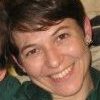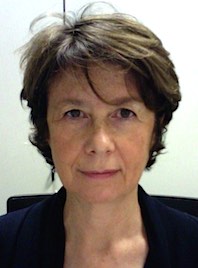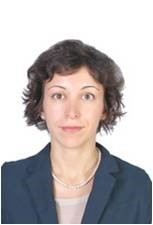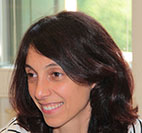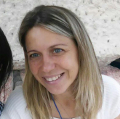Studying at the University of Verona
Here you can find information on the organisational aspects of the Programme, lecture timetables, learning activities and useful contact details for your time at the University, from enrolment to graduation.
Academic calendar
The academic calendar shows the deadlines and scheduled events that are relevant to students, teaching and technical-administrative staff of the University. Public holidays and University closures are also indicated. The academic year normally begins on 1 October each year and ends on 30 September of the following year.
Course calendar
The Academic Calendar sets out the degree programme lecture and exam timetables, as well as the relevant university closure dates..
| Period | From | To |
|---|---|---|
| Semester 1 | Oct 3, 2022 | Jan 27, 2023 |
| Primo sem_ 3 anno | Oct 24, 2022 | Jan 27, 2023 |
| Semester 2 | Mar 6, 2023 | Jun 16, 2023 |
| Session | From | To |
|---|---|---|
| Sessione invernale d'esame | Jan 30, 2023 | Mar 3, 2023 |
| Sessione estiva d'esame | Jun 19, 2023 | Jul 31, 2023 |
| Sessione autunnale d'esame | Sep 4, 2023 | Sep 29, 2023 |
| Session | From | To |
|---|---|---|
| Sessione di laurea estiva | Jul 21, 2023 | Jul 21, 2023 |
| Sessione di laurea autunnale | Oct 20, 2023 | Oct 20, 2023 |
| Sessione di laurea autunnale - Dicembre | Dec 7, 2023 | Dec 7, 2023 |
| Sessione invernale di laurea | Mar 15, 2024 | Mar 15, 2024 |
| Period | From | To |
|---|---|---|
| Ponte Festa di tutti i Santi | Oct 31, 2022 | Nov 1, 2022 |
| Ponte dell'Immacolata Concezione | Dec 8, 2022 | Dec 9, 2022 |
| Vacanze natalizie | Dec 23, 2022 | Jan 8, 2023 |
| Vacanze di Pasqua | Apr 7, 2023 | Apr 10, 2023 |
| Festa della Liberazione | Apr 24, 2023 | Apr 25, 2023 |
| Festa dei Lavoratori | May 1, 2023 | May 1, 2023 |
| Festa del Santo Patrono | May 21, 2023 | May 21, 2023 |
| Festa della Repubblica | Jun 2, 2023 | Jun 2, 2023 |
| Chiusura estiva | Aug 14, 2023 | Aug 19, 2023 |
Exam calendar
Exam dates and rounds are managed by the relevant Science and Engineering Teaching and Student Services Unit.
To view all the exam sessions available, please use the Exam dashboard on ESSE3.
If you forgot your login details or have problems logging in, please contact the relevant IT HelpDesk, or check the login details recovery web page.
Should you have any doubts or questions, please check the Enrollment FAQs
Academic staff
 michela.cecchin@univr.it
michela.cecchin@univr.it
Study Plan
The Study Plan includes all modules, teaching and learning activities that each student will need to undertake during their time at the University.
Please select your Study Plan based on your enrollment year.
1° Year
| Modules | Credits | TAF | SSD |
|---|
2° Year activated in the A.Y. 2023/2024
| Modules | Credits | TAF | SSD |
|---|
3° Year It will be activated in the A.Y. 2024/2025
| Modules | Credits | TAF | SSD |
|---|
| Modules | Credits | TAF | SSD |
|---|
| Modules | Credits | TAF | SSD |
|---|
| Modules | Credits | TAF | SSD |
|---|
Legend | Type of training activity (TTA)
TAF (Type of Educational Activity) All courses and activities are classified into different types of educational activities, indicated by a letter.
Plant genetics and breeding (2023/2024)
Teaching code
4S02027
Credits
6
Language
Italian
Scientific Disciplinary Sector (SSD)
AGR/07 - AGRICULTURAL GENETICS
Courses Single
Authorized with reserve
The teaching is organized as follows:
Teoria
Laboratorio [Laboratorio 1° turno]
Laboratorio [Laboratorio 2° turno]
Learning objectives
The course aims at illustrating principles of genetic transmission at molecular, cellular and population level. Mendelian, molecular and population genetics elements will be taught. Existing traditional grapevine breeding methods, based on natural and induced genetic variability, and modern plant breeding instruments, genomic based, will be reviewed.
Prerequisites and basic notions
Knowledge of cell biology and physiology, organic chemistry and biochemistry
Program
Introduction to genetics, the different branches of genetics. Identification of genetic material from Griffith's experiments and from those of Avery, McLeod and McCarty.
Chemical, physical and functional structure of DNA. Organization of DNA.
The chromosomes.
DNA replication, Meselson and Stahl experiments, DNA polymerase and telomerase.
Gene expression and the central dogma of molecular biology Properties of RNA, types of RNA.
The genetic code and protein translation.
Gene regulation, differences between prokaryotes and eukaryotes.
Gene mutations and repair mechanisms.
Natural and induced mutations.
Chromosomal and genomic mutations, aneuploidy and polyploidy.
Mitosis and cell cycle.
Meiosis and gamete formation.
Mendelian inheritance and chromosomal theory of inheritance. Extensions to Mendel's hypotheses, autosomal genes and genes linked to sex.
Associated genes and association maps.
Segregation and recombination and cytological basis. Qualitative and quantitative characters, Johanssen studies in bean.
Heritability, environmental and genetic variance.
Extranuclear inheritance, chloroplasts and mitochondria. Epigenetic inheritance.
Transposons and mobile elements.
Population genetics.
Genetic improvement of plants, conventional methods and methods based on genetic modification.
The goals of modern breeding in viticulture.
Didactic methods
Lectures with laboratory exercises. Lessons will be delivered exclusively in person without any recourse to emergency online teaching methods. It will not be provided in other ways except limited to students who, due to Covid, cannot access the University, upon presentation of the relative request on the appropriate form. The delivery methods relating to this case will be decided by the teacher and may include sending the registration, organizing a lesson in streaming, sending additional material or organizing a meeting in person or remotely.
Learning assessment procedures
The assessment of learning outcomes involves a written test with multiple choice questions, open questions and exercises. The test lasts 2 hours. To access the written test it is necessary to submit at least one week before the test the reports relating to the laboratory activities with compulsory attendance. If the mark in the written test is less than or equal to 20/30, the candidate will also have to sit an oral test. If the grade of the written test is higher than 20/30, the candidate can choose to take the oral test or accept the grade of the written test. The oral exam potentially covers all the topics of the program. The final evaluation is expressed out of thirty
Evaluation criteria
The scores attributed to the multiple choice answers, to the open answers and to the exercises will be explained in the exam text. The laboratory reports will be assigned the following scores: "1" for complete and well-structured relationships, "0" for sufficiently structured relationships and "-1" for incomplete relationships.
Criteria for the composition of the final grade
The final grade will be calculated by adding the grade from the written test with the grade of the report.
Exam language
Italiano
Sustainable Development Goals - SDGs
This initiative contributes to the achievement of the Sustainable Development Goals of the UN Agenda 2030. More information on sustainability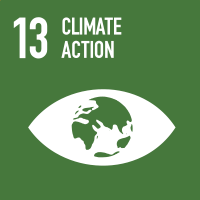
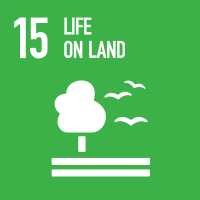
Type D and Type F activities
Le attività formative di tipologia D sono a scelta dello studente, quelle di tipologia F sono ulteriori conoscenze utili all’inserimento nel mondo del lavoro (tirocini, competenze trasversali, project works, ecc.). In base al Regolamento Didattico del Corso, alcune attività possono essere scelte e inserite autonomamente a libretto, altre devono essere approvate da apposita commissione per verificarne la coerenza con il piano di studio. Le attività formative di tipologia D o F possono essere ricoperte dalle seguenti attività.
1. Insegnamenti impartiti presso l'Università di Verona
Comprendono gli insegnamenti sotto riportati e/o nel Catalogo degli insegnamenti (che può essere filtrato anche per lingua di erogazione tramite la Ricerca avanzata).
Modalità di inserimento a libretto: se l'insegnamento è compreso tra quelli sottoelencati, lo studente può inserirlo autonomamente durante il periodo in cui il piano di studi è aperto; in caso contrario, lo studente deve fare richiesta alla Segreteria, inviando a carriere.scienze@ateneo.univr.it il modulo nel periodo indicato.
2. Attestato o equipollenza linguistica CLA
Oltre a quelle richieste dal piano di studi, per gli immatricolati dall'A.A. 2021/2022 vengono riconosciute:
- Lingua inglese: vengono riconosciuti 3 CFU per ogni livello di competenza superiore a quello richiesto dal corso di studio (se non già riconosciuto nel ciclo di studi precedente).
- Altre lingue e italiano per stranieri: vengono riconosciuti 3 CFU per ogni livello di competenza a partire da A2 (se non già riconosciuto nel ciclo di studi precedente).
Tali cfu saranno riconosciuti, fino ad un massimo di 6 cfu complessivi, di tipologia F se il piano didattico lo consente, oppure di tipologia D. Ulteriori crediti a scelta per conoscenze linguistiche potranno essere riconosciuti solo se coerenti con il progetto formativo dello studente e se adeguatamente motivati.
Gli immatricolati fino all'A.A. 2020/2021 devono consultare le informazioni che si trovano qui.
Modalità di inserimento a libretto: richiedere l’attestato o l'equipollenza al CLA e inviarlo alla Segreteria Studenti - Carriere per l’inserimento dell’esame in carriera, tramite mail: carriere.scienze@ateneo.univr.it
3. Competenze trasversali
Scopri i percorsi formativi promossi dal TALC - Teaching and learning center dell'Ateneo, destinati agli studenti regolarmente iscritti all'anno accademico di erogazione del corso https://talc.univr.it/it/competenze-trasversali
Modalità di inserimento a libretto: non è previsto l'inserimento dell'insegnamento nel piano di studi. Solo in seguito all'ottenimento dell'Open Badge verranno automaticamente convalidati i CFU a libretto. La registrazione dei CFU in carriera non è istantanea, ma ci saranno da attendere dei tempi tecnici.
4. CONTAMINATION LAB
Il Contamination Lab Verona (CLab Verona) è un percorso esperienziale con moduli dedicati all'innovazione e alla cultura d'impresa che offre la possibilità di lavorare in team con studenti e studentesse di tutti i corsi di studio per risolvere sfide lanciate da aziende ed enti. Il percorso permette di ricevere 6 CFU in ambito D o F. Scopri le sfide: https://www.univr.it/clabverona
ATTENZIONE: Per essere ammessi a sostenere una qualsiasi attività didattica, incluse quelle a scelta, è necessario essere iscritti all'anno di corso in cui essa viene offerta. Si raccomanda, pertanto, ai laureandi delle sessioni di dicembre e aprile di NON svolgere attività extracurriculari del nuovo anno accademico, cui loro non risultano iscritti, essendo tali sessioni di laurea con validità riferita all'anno accademico precedente. Quindi, per attività svolte in un anno accademico cui non si è iscritti, non si potrà dar luogo a riconoscimento di CFU.
5. Periodo di stage/tirocinio
Oltre ai CFU previsti dal piano di studi (verificare attentamente quanto indicato sul Regolamento Didattico): qui informazioni su come attivare lo stage.
Insegnamenti e altre attività che si possono inserire autonomamente a libretto
| years | Modules | TAF | Teacher |
|---|---|---|---|
| 3° | Cellar door wine tourism | D |
Katia Laura Sidali
(Coordinator)
|
| 3° | Wine marketing | D |
Diego Begalli
(Coordinator)
|
| 3° | New Grapevine Breeding techniques | D |
Sara Zenoni
(Coordinator)
|
Career prospects
Module/Programme news
News for students
There you will find information, resources and services useful during your time at the University (Student’s exam record, your study plan on ESSE3, Distance Learning courses, university email account, office forms, administrative procedures, etc.). You can log into MyUnivr with your GIA login details: only in this way will you be able to receive notification of all the notices from your teachers and your secretariat via email and soon also via the Univr app.
Graduation
Attendance
As stated in the Teaching Regulations for the A.Y. 2022/2023, attendance is mandatory for practical and laboratory activities, unless otherwise determined by the Teaching Committee.
Documents
| Title | Info File |
|---|---|
|
|
pdf, it, 121 KB, 18/10/23 |

 045 8028731
045 8028731





